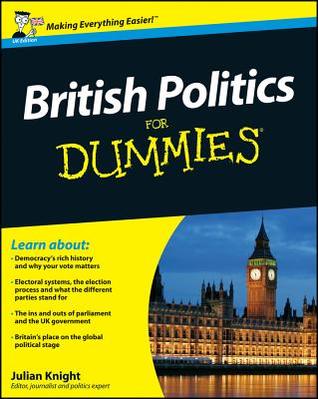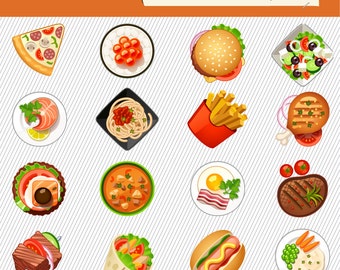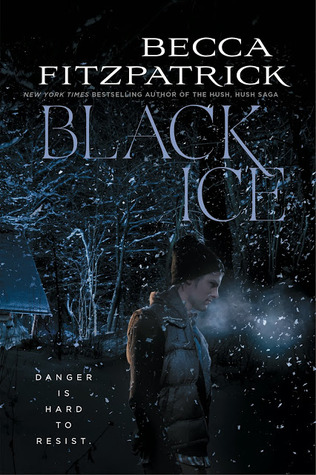Hi everyone!
Today's Kooky Babble is about vegetarianism. This post is not meant to make you a vegetarian or any of that BS, it's just supposed to be informative. If any of you have checked out my 'About Me' in the sidebar you know I'm a vegetarian with a love of rock music and books. I've never really discussed my diet before, because really? That's pretty much all that vegetarianism is. A diet.
People with allergies (whether food related or not) generally don't go announcing to the world that they're allergic to mushrooms or to bees. I mean, unless you're preparing a meal or trekking through the wilderness, why would you even mention it? I've cared less and less that people know I'm a vegetarian in the past couple of years. But recently I've heard a lot of backlash against being a vegetarian and I just wanted to straighten things out.
The most important thing to remember is that being a vegetarian is simply eating certain foods and excluding others. It's a diet. That is all. Being a vegetarian has nothing whatsoever to do with animal rights. Well, that's not entirely true. A lot of animal rights activists are vegetarians, but not all vegetarians are animal rights activists. Why does that distinction matter? Because there are all different sorts of reasons for going veggie. Here are five of the most common / broad categories out there.
1) The Environment
This is probably not the first thing that comes to mind when thinking of vegetarians. I mean, we all try to recycle and walk or bike instead of taking the car when we can. In 2006, the UN calculated that the
combined climate change emissions of animals bred for their meat were about 18% of the global total – more than cars, planes and all other forms of transport put together. (
The Guardian) Basically, the farts from animals (methane & other gases) contribute to global warming. Now there's a whole other debate right there.
Thirty percent of the earth’s entire land surface—a massive 70% of all agricultural land—is used for rearing farmed animals. Livestock farming can lead to overgrazing causing soil erosion, desertification and deforestation. Twenty percent of the world’s grazing land has already been designated as degraded due to the rearing of animals for their meat. Livestock production is responsible for 70% of deforestation in the Amazon region of Latin America, where rainforests are being cleared to create new pastures. (
Down To Earth)
I honestly could go on and on, but I'll sum it up as best I can. Breeding animals for meat / dairy hurts the environment by destroying the land, polluting the air and the water, and using up a serious amount of resources that could be used for other things (like feeding the hungry).
2) Health
There are all kinds of things in meat that you really don't want to be putting in your body. Meat nowadays is pumped full of hormones and fat. Even milk is kind of gross if you know what's in it.
Other health benefits are helping your heart out (especially for people with high cholesterol or high blood pressure, also prevents heart disease), reduces cancer risk (In one study of more than 35,000 women published in the British Journal of Cancer, those who ate the most red and processed meat were found to have the highest risk of breast cancer. [
Women's Health Mag]), to keep your weight down, longevity, and you can prevent food-borne illnesses (such as food poisoning from undercooked meat, like in the movie
Bridesmaids).
3) Taste
Believe it or not there are people out there who simply don't like the taste of meat. I certainly cannot stand the smell anymore. I hide whenever someone insists on cooking meat in the house. It reeks, and it really just makes me want to hurl. Also, if you think about it, when you take a bite out of a piece of meat you're essentially eating a corpse. That kind of grossed me out. Made me feel like a zombie eating my own kind. Or a cannibal or something. I know it doesn't bother other people, but it's dead. And a corpse. I think I'm hung up on the corpse bit.
My brother became a vegetarian because he was picky about what meat he wanted to eat. In the end he gave it up all together. Now he's picky with his vegetables. I wonder what he'll eat then?
4) Trend
There are a lot of trends and fad diets out there, and some people become a vegetarian as one of those trends. Other people are rebels, wanting to go against mainstream society. Or maybe some people become vegetarian 'just because.' There isn't always a logical reason for becoming a vegetarian.
I became a vegetarian on a dare. Yup, a dare. Three and a half years ago my friends bet I couldn't go more than a week without eating meat. I used to love chicken. It was my go-to meat of choice. Now I don't eat meat at all. I stayed with the vegetarian diet. I guess I won that bet / dare.
It really wasn't that hard for me to give up meat. I never ate seafood because it smelled bad, I never ate meat off the bone because it reminded me that I was essentially eating the flesh off a corpse, I never ate organs or unusual animal dishes (no cow brain or haggis for me, thanks). When I did eat meat it was usually hamburgers, chicken tenders/nuggets/sandwiches, turkey bacon, or sausage.
I occasionally miss pepperoni, but that's about it. Everything that's made of meat has a substitute. Some of those substitutes rock (like veggie burgers, meatless breakfast sausage, and crispy tofu nuggets) and some do not (like slimy tofu [ew!], veggie bacon [seriously?], or meatless chicken nuggets). A lot of things you don't even need substitutes for. Like tacos. Instead of meat just add in a little more veggies than you normally put on a taco with some seasoning. Nutritious and delicious. Yum!
5) Animal Rights
Of course, this is what most people think of when they think of vegetarianism. There are some people who believe it's their god-given right to kill and consume animal flesh. Other people believe that humans aren't as special as we think we are and that we should share the planet with our neighboring animal life by treating them with compassion.
The argument is what right do we have to determine who lives or dies? And no, god is not the right answer. It's fine if you're a religious person, but religion doesn't say all that many things about animal rights and it's best to keep the topics separate. Back to the judge and jury of animal life. Do we really have the right to kill an animal for our own palate?
I have friends who say they eat meat, but they won't eat an animal that is killed in front of them. Pretending that animals don't suffer and lose their life simply because you buy the meat all pack edged and fancy with a bow on top doesn't change anything. An animal still died to feed you. It's kind of a double standard.
Some animal rights people are extreme. We have extremists of all kinds. That's just the way humans are. I personally don't mind if other people eat meat. I think's it's gross and disagree with wasting a life, but I won't be lecturing you. I've learned that lecturing only alienates people further. Some vegetarians do lecture and try to sway your opinion, but I'm against that. I think people need to make up their own minds about things.
Types of Vegetarians
I've had someone compare the different types of vegetarians to the types of religious people. Normal, meat-eaters are like the atheists, with the vegans being like mormons (comparing the level of strictness in their religion). I guess that's one analogy that sort of works? I have a feeling some people might also be offended by that analogy (I apologize if you are offended).
Anyways, I wanted to talk to you about the different types of vegetarians. I'm just going to do a brief overview because this post is starting to get a bit long. Here goes.
Semi Vegetarian
There are different definitions for this type of vegetarian. Usually I've heard that a semi vegetarian is someone who doesn't eat red meat, often times for health related issues or concerns. That would mean they would eat poultry and seafood and other white meats. Of course dairy and eggs are also eaten by this kind of vegetarian.
Pescetarian
Supposedly this word is a combination of the Italian word for fish and the English word for vegetarian. I regrettably do not speak Italian so I cannot confirm that. I can, however, confirm that a pescetarian is a vegetarian who eats seafood, dairy, and eggs. The word looks weird from where I'm sitting, but I do believe you pronounce it pes-kah-tair-ian. Maybe it's the Italien that has it spelt the way it is. Pescetarian's are supposed to have the healthiest, most well-rounded diet of all of the types of vegetarians because of the balance of vegetables and the health benefits of eating fish and other types of seafood.
Lacto, Ovo, and Lacto-Ovo Vegetarians
Lacto comes from the Latin root meaning milk. A lacto vegetarian is a vegetarian who only eats dairy. No meat or seafood and no eggs. Ovo is also Latin in origin (I think) and means egg. So an ovo vegetarian is a vegetarian who eats eggs, but no meat or seafood or dairy. Logically then, a lacto-ovo vegetarian is someone who eats egg and dairy but no meat or seafood. It also happens to be the most common form of vegetarianism. A lacto-ovo vegetarian is what I am.
Raw Food Diet
I don't know that this is strictly a vegetarian diet, but it definitely not a traditional omnivore diet. The raw food diet is based on the idea that if you cook it, you kill it. They eat uncooked, unprocessed food. And they only drink water. They don't eat food above 118 degrees Fahrenheit. I guess they can have sushi?
Vegan
Vegans are the strictest of vegetarians. They are often called 'true vegetarians' because they are completely against all animal products. No meat, seafood, dairy, or eggs. Depending on how strict a vegan is they often exclude products like honey (since its made by bees, and I guess they're technically an animal), furs, leather, wool and silk. Veganism is probably the most difficult vegetarian lifestyle to keep. They have to check the tags on clothing (in case of wool or silk) and the ingredients on things like soap and shampoo (in case of honey or milk). And they don't eat eggs or dairy products so they do have to be more protein and B-12 (a type of vitamin vegetarians often lack) conscious. Supposedly it's also the most rewarding of the vegetarian diets because of all the effort they put into it. Also, veganism is more of a lifestyle than just a diet to those who take it seriously. Vegan plane food is way better than the normal vegetarian plane food too, haha :)
Random thought: What books do you know of where the protagonist is some type of vegetarian? I recently read one called Trial by Fire, by Josephine Angelini. Lily Proctor (the protagonist) is a vegan.
Here are list of YA books that have vegetarian protagonists in them.
I don't plan to post about vegetarianism again, but I wanted to clear things up for some people. Not all vegetarians are crazy animal rights extremists looking to gun down meat-eaters. Oh, and don't concern yourselves over how we get our protein. Google it and you'll find that protein isn't actually that big of a concern for us. I'm done on this topic now. Hopefully this was informative and interesting to learn about. My next Kooky Babble will hopefully be more interesting and less cray-cray :) Does anyone else have an unusual diet they'd like to share? I know I left out a few, but I was trying to include the most common veggie ones.
Happy reading! What's your reading goal for 2015?















































